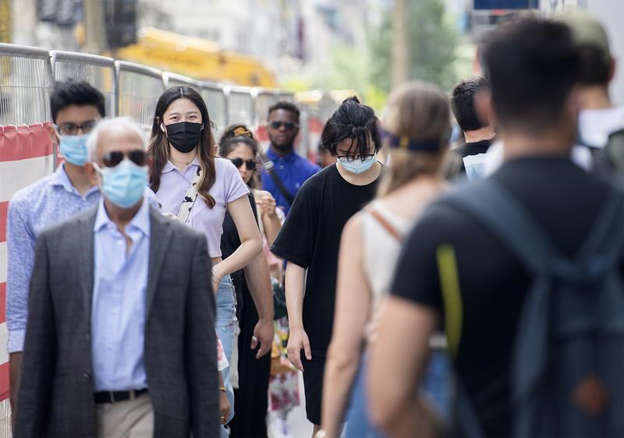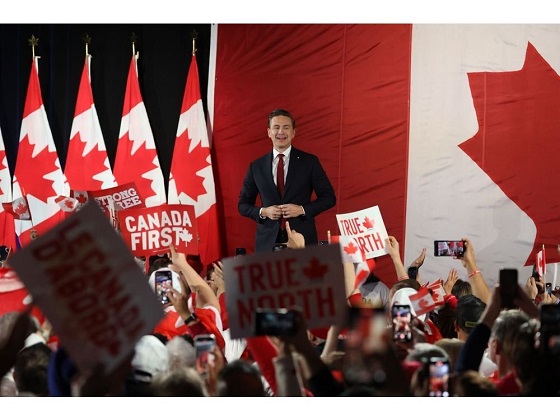Crime
AG Pam Bondi confirms DOJ will release Epstein flight logs and names
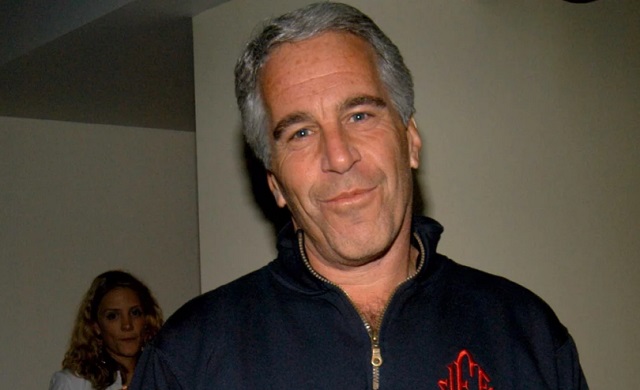
 MxM News
MxM News
Quick Hit:
Attorney General Pam Bondi revealed on Wednesday that the Department of Justice (DOJ) is set to release information related to Jeffrey Epstein on Thursday. Speaking with Jesse Watters on Jesse Watters Primetime, Bondi stated: “What you’re going to see, hopefully tomorrow, is a lot of flight logs, a lot of names, a lot of information.”
Key Details:
-
Bondi’s comments come as Republican lawmakers continue to push the DOJ to declassify files related to Epstein, as well as the assassinations of President John F. Kennedy, Dr. Martin Luther King Jr., and Sen. Robert F. Kennedy.
-
Florida Rep. Anna Paulina Luna had been pressing the DOJ for answers and confirmed receiving a response acknowledging her request for a briefing on the matter.
-
President Donald Trump signed an executive order last month directing federal agencies to establish a process for releasing classified documents, including those tied to the Epstein case.
Diving Deeper:
On Wednesday, Attorney General Pam Bondi disclosed that the DOJ is preparing to release key documents related to Jeffrey Epstein, signaling a potentially significant development in the case. Appearing on Jesse Watters Primetime, Bondi noted that the release would include flight logs, names, and additional information. “It’s pretty sick what that man did, along with his co-defendant,” she remarked, underscoring the disturbing nature of Epstein’s network.
Bondi’s announcement follows increasing pressure from Republican lawmakers, particularly Rep. Anna Paulina Luna, who has been leading efforts to obtain declassified records related to Epstein and several high-profile assassinations. Luna, who chairs the House Oversight Committee’s Task Force on the Declassification of Federal Secrets, said she received a response from the DOJ after sending multiple inquiries on Feb. 11th and Feb. 19th. The letter from Principal Deputy Assistant Attorney General Patrick D. Davis confirmed that the department is reviewing the request but did not provide a definitive timeline for the full release.
The DOJ’s delayed response prompted Luna to take to social media earlier this week, urging the agency to comply with Trump’s recent executive order. The order instructed the DOJ to coordinate with Director of National Intelligence Tulsi Gabbard, National Security Advisor Michael Waltz, and White House Counsel David Warrington to formulate a release plan for the JFK files by Feb. 7th and the MLK and Robert F. Kennedy files by March 9th.
In addition to the assassination records, Luna is demanding transparency regarding Epstein’s client list. Bondi previously indicated that the DOJ was reviewing that information alongside the Kennedy and King files. Epstein, a convicted sex offender, died in 2019 while awaiting trial on sex trafficking charges.
Crime
Could the UK’s ‘Grooming Gangs’ operate in Canada?

From the Macdonald Laurier Institute
By Raheel Raza
Fear of being labelled a racist prevented UK officials from stopping the mass abuse of women by “grooming gangs.” Could the same happen in Canada?
If you asked Canadians what they know about the United Kingdom’s “grooming gangs” the majority would be clueless. So far, the issue has been an exclusively UK based scandal, with limited media coverage.
These so-called “grooming gangs” sexually exploited hundreds of vulnerable young women and girls across the UK for many years before their activities came to public attention in the early 2010s. In essence, because the perpetrators are largely groups of British-Pakistani men, the media, law enforcement, and officials failed in their duty to address or publicize the scandal for fear of being accused of racism. This is a truly tragic result of identity politics on a massive scale.
The victims were mostly female and white (although some Asian girls were also targeted). Many victims were underage, some were homeless or living in state children’s homes. Local social services officials knew many of the girls but stood by as the gangs exploited them – sometimes for years.
Media reports suggested that local law enforcement also knew some of the perpetrators but waited unreasonably long before making arrests and laying charges. Scores of men in different towns have since been arrested, tried and imprisoned for their actions. But hundreds roam free, even today.
Among the worst cases were gangs operating in the northern towns of Rotherham and Rochdale, but many others have been exposed around the country over the last decade-and-a-half: Oldham, Oxford, Telford, Peterborough, and others. Ministers and members of the opposition have acknowledged that similar gangs may still be operating.
The story came to international attention recently, due to intervention by Elon Musk, who tweeted in clear terms about the UK’s problems with racial integration. Prime Minister Keir Starmer is now grappling with the re-emergence of this long-running scandal.
GB News UK produced one of the most comprehensive and detailed exposes through an investigative documentary featuring exclusive interviews with survivors, whistleblowers, and activists. The documentary explains why the police and authorities have allowed such a significant cover up to persist for so long. There is evidence of a massive cover up by people who had infiltrated into social services, councils and law enforcement.
UK Safeguarding Minister Jess Phillips refused a request from Oldham City Council to launch a national inquiry into the issue and instead told the council it should mount a local one itself. But thankfully, UK Home Secretary Yvette Cooper has announced plans for a nationwide review and five government-backed local inquiries.
British academic Alexis Jay, a professor of social work and a child protection expert, concluded a multi-year public inquiry detailing how an organized gang abused girls as young as 11, trafficking them across the country and even picking them up from children’s care homes in taxis without any effort to hide what they were doing.
Jay found that “1,400 children had been sexually exploited, raped by multiple perpetrators, trafficked across other towns, abducted, beaten, and threatened with guns. Children had even been doused in petrol. Girls as young as 11 had been raped. Those reports a decade ago identified a failure to confront Pakistani heritage gangs and a ‘widespread perception’ that they should ‘downplay the ethnic dimensions’ for fear of being seen to be racist.”
Some UK Labour politicians previously said that fear of being labelled racist has created a taboo around saying there is a specific ethnicity of men, of Pakistani heritage, participating in sexual exploitation.
Among them is Sarah Champion, who represents of the areas where grooming gangs operated. She has campaigned consistently on the issue, and recently called for another national inquiry into grooming gangs, putting more pressure on Prime Minister Starmer.
Champion wrote an op-ed for a tabloid newspaper in which she stated: “Britain has a problem with British Pakistani men raping and exploiting white girls. There. I said it. Does that make me a racist? Or am I just prepared to call out this horrifying problem for what it is?”
Champion’s statement caused such an outrage – the Labour Party responded by shunning her – that she had to retract it from her article.
In 2023, then-Home Secretary Suella Braverman made several comments about the ethnicity of abusers in high-profile gangs. She said, “the perpetrators are groups of men, almost all British Pakistani.” She told the BBC the gangs “overwhelmingly” consisted of British Pakistani males.
Reports first surfaced about the groomer gangs more than a decade earlier. In September 2012, journalist Andrew Norfolk, chief investigative reporter for The Times, published an article based on a police report about the extent of the issue. It revealed that networks of mainly British Pakistani men were abusing children in Rotherham “on an unprecedented scale.”
Law authorities failed to prosecute suspects despite police and child protection agencies in Rotherham having had knowledge of these crimes for decades, the newspaper said.
To show that they were engaged, governments and agencies commissioned various reports, but no action was taken. In these reports, the criminals were referred to as “men of Asian heritage”!
Meanwhile Naz Shah, a Labour MP, retweeted, “Those abused girls in Rotherham and elsewhere just need to shut their mouths. For the good of diversity.” She later deleted her retweet and unliked the post.
In 2018, I was invited to the UK to give testimony in the House of Lords about the Sharia debate in Ontario. At the time, there was a rising number of Sharia Councils operating in the UK that were depriving many Muslim women of their rights.
During that visit I met a white woman named Toni Bugle. Bugle is founder of MARIAS – Mothers Against Radical Islam and Sharia. Bugle had been a victim of gang rape and abuse as a child (not by grooming gangs) so she paid close attention to the stories of victims of grooming gangs.
Bugle asked me if I would attend a conference that she set up at the UK Parliament where some of the grooming gang victims would tell their stories. She told me she needed a Muslim woman’s voice because when she tried to expose the stories, she was called a racist, bigot, and Islamophobe.
At Bugle’s conference (which had no media presence) I met some of the rape victims, including Caitlin, Samantha, and Torron. They were scared and insecure and spoke in soft voices, looking around constantly. Some of them showed visible signs of trauma and had bruises on their arms and faces. But they were brave enough to share their stories, which were absolutely horrendous. The shock gave me sleepless nights.
Bugle had also organized a rally outside the British Parliament with the victims and I was happy to join her to amplify the victims’ concerns about the authorities’ failure to stop the abuse.
Bugle told me “I realized that there was a massive issue with Muslim men of predominantly Pakistani and Bangladeshi ethnicity targeting predominantly young white working-class girls.” Bugle decided to reach out to the victims to help them and started to hear their stories. She continues to do that to this day:
“I always have my phone near me,” Bugle says, “These young girls can and do call me at anytime… I make myself available. If I had to give a number for how many girls I’ve helped, I would take a guess that via just the phone maybe fifty or sixty and more direct involvement approximately ten or fifteen young women. I have also helped many Muslim women who were facing the trauma of forced marriage and sharia councils – two of which I introduced at the conference.”
Hearing this, I was shocked as to why Muslim organizations in UK (especially women’s groups) did not condemn what was happening to their non-Muslim sisters or take any action? Imagine if this was the reverse and happened to Muslim women? All hell would have broken loose!
Bugle said that she had also been contacted by young girls for support. The first girl who reached out, Caitlin Spencer, eventually wrote a book titled, Please, let me go: the horrific true story of a girl’s life in the hands of sex traffickers.
From the age of 14, traffickers controlled Caitlin, raped her, and repeatedly sold and passed her on to new gangs across the UK. Her abusers were blatant in their attacks, often collecting her from school or home, to be taken to flats they owned, family homes, or hotels booked for the day.
Please, Let Me Go is Caitlin’s shocking story of abuse and survival. She writes, “I was trapped. I’d been raped so many times, abused by hundreds, if not thousands. They could have left every door open, and it would have made no difference. And I always came back – they always brought me back.”
Bugle says, “given that Caitlin still sees her abusers driving their taxis with impunity and that other victims similarly see perpetrators living freely and intimidating them, what will our government do to bring those perpetrators to justice?”
Bugle continues, “I have met girls who have been raped, defecated on, urinated on, had children from their abusers and often those children were taken away from these girls by social services. You can imagine the damage that did was devastating for the whole family.”
Another girl Bugle helped is Sarah, a 15 year old white girl. A journalist for the Daily Mail did a story on Sarah: a grooming gang coerced her to marry a gang member who effectively forced her into sex slavery after abducting her in a Tesco parking lot in an English suburb. Sarah’s captivity lasted for 12 years.
I asked Bugle why they didn’t go to court or the police. She says “sadly they went to the police, who pretty much promised they would deal with what happened – but also made it very clear it would be ‘their word against the men’… The girls were made to feel they were not believed and it led to the girls just giving up… every time they went to the police and nothing was done the girls would often find themselves beaten by the very men they reported.”
Bugle says she saw this same trend, of girls and their families not believed by local authorities, occur over and over. The total failure of social services, law enforcement, teachers, and council officers exacerbated the trauma faced by these victims.
In the past eight years, I’ve observed the changing face of Canada, and the picture is eerily similar to the changes I’ve observed in UK. Every time I returned from a trip to the UK, I worried that with a rise in wokeism, political correctness, and DEI policies, a similar situation of abuse could arise in Canada, and that Canadian leaders would likewise remain silent.
The rise in radical Islamist extremism across Europe and the UK is also happening in Canada, while our politicians and institutions refuse to acknowledge this reality. Radical Islamist extremism is directly connected to the behaviour and attitudes of Islamists. They justify their weaponizing of sexual slavery, disrespect, and dishonouring of non-Muslim women as being in sync with their warped interpretation of the faith. The sexual abuse unleashed by Hamas terrorists against innocent Israeli women is a further indication of the ideological mindset of Islamist radicals. For example, ISIS raped and abused Yazidi women – the irony being that some of the Yazidi women given asylum in the West have seen their captors on the streets.
We now see protestors in Canada rallying in favour of a radical Islamist terror organizations with impunity, a weak judicial system where criminals roam the streets on bail days after committing a crime, an influx of mass immigration with a lack of integration, assimilation, and respect for Canadian values, and a hyper focus on identity politics across our political institutions. A worrying thought: All the ingredients that allowed the “grooming gangs” to operate in the UK are now present in Canada. Canada should learn from the UK’s experience before it is too late.
Raheel Raza is President of The Council for Muslims Against Antisemitism and a senior fellow at the Macdonald-Laurier Institute.
Addictions
Does America’s ‘drug czar’ hold lessons for Canada?
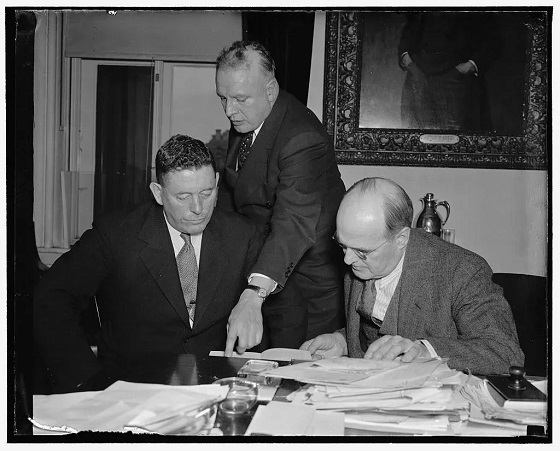
Harry Anslinger (center) discussing cannabis control with Canadian narcotics chief Charles Henry Ludovic Sharman and Assistant Secretary of the Treasury Stephen B. Gibbons in 1938. (Photo credit: United States Library of Congress’ Prints and Photographs division)
The US has had a drug czar for decades. Experts share how this position has shaped US drug policy—and what it could mean for Canada
Last week, Canada announced it would appoint a “fentanyl czar” to crack down on organized crime and border security.
The move is part of a suite of security measures designed to address US President Donald Trump’s concerns about fentanyl trafficking and forestall the imposition of 25 per cent tariffs on Canadian goods.
David Hammond, a health sciences professor and research chair at the University of Waterloo, says, “There is no question that Canada would benefit from greater leadership and co-ordination in substance use policy.”
But whether Canada’s fentanyl czar “meets these needs will depend entirely on the scope of their mandate,” he told Canadian Affairs in an email.
Canadian authorities have so far provided few details about the fentanyl czar’s powers and mandate.
A Feb. 4 government news release says the czar will focus on intelligence sharing and collaborating with US counterparts. Canada’s Public Safety Minister, David McGuinty, said in a Feb. 4 CNN interview that the position “will transcend any one part of the government … [It] will pull together a full Canadian national response — between our provinces, our police of local jurisdiction, and work with our American authorities.”
Canada’s approach to the position may take cues from the US, which has long had its own drug czar. Canadian Affairs spoke to several US historians of drug policy to better understand the nature and focus of this role in the US.
Subscribe for free to get BTN’s latest news and analysis – or donate to our investigative journalism fund.
The first drug czar
The term “czar” refers to high-level officials who oversee specific policy areas and have broad authority across agencies.
Today, the US drug czar’s official title is director of the Office of National Drug Control Policy. The director is appointed by the president and responsible for advising the president and coordinating a national drug strategy.
Taleed El-Sabawi, a legal scholar and public health policy expert at Wayne State University in Detroit, Mich., said the Office of National Drug Control Policy has two branches: a law enforcement branch focused on drug supply, and a public health branch focused on demand for drugs.
“Traditionally, the supply side has been the focus and the demand side has taken a side seat,” El-Sabawi said.
David Herzberg, a historian at University at Buffalo in Buffalo, N.Y., made a similar observation.
“US drug policy has historically been dominated by moral crusading — eliminating immoral use of drugs, and policing [or] punishing the immoral people (poor, minority, and foreign/traffickers) responsible for it,” Herzberg told Canadian Affairs in an email.
Harry Anslinger, who was appointed in 1930 as the first commissioner of the Federal Bureau of Narcotics, is considered the earliest iteration of the US drug czar. The bureau later merged into the Drug Enforcement Administration, the lead federal agency responsible for enforcing US drug laws.
Anslinger prioritized enforcement, and his impact was complex.
“He was part of a movement to characterize addicts as depraved and inferior individuals and he supported punitive responses not just to drug dealing but also to drug use,” said Caroline Acker, professor emerita of history at Carnegie Mellon University in Pittsburgh, Pa.
But Anslinger also cracked down on the pharmaceutical industry. He restricted opioid production, effectively making it a low-profit, tightly controlled industry, and countered pharmaceutical public relations campaigns with his own.
“The Federal Bureau of Narcotics [at the time could] in fact be seen as the most robust national consumer protection agency, with powers to regulate and constrain major corporations that the [Food and Drug Administration] could only dream of,” said Herzberg.
The punitive approach to drugs put in place by Anslinger was the dominant model until the Nixon administration. In 1971, President Richard Nixon created an office dedicated to drug abuse prevention and appointed Jerome Jaffe as drug czar.
Jaffe established a network of methadone treatment facilities across the US. Nixon initially combined public health and law enforcement to combat rising heroin use among Vietnam War soldiers, calling addiction the nation’s top health issue.
However, Nixon later reverted back to an enforcement approach when he used drug policy to target Black communities and anti-war activists.
“We knew we couldn’t make it illegal to be either against the war or Black, but by getting the public to associate the hippies with marijuana and Blacks with heroin, and then criminalizing both heavily, we could disrupt those communities,” Nixon’s top domestic policy aide, John Ehrlichman, said in a 1994 interview.
 |
Michael Botticelli, Acting Director of the Office of National Drug Control Policy March 7, 2014 – Jan. 20, 2017 under President Barack Obama. [Photo Credit: Executive Office of the President of the United States]
Back and forth
More recently, in 2009, President Barack Obama appointed Michael Botticelli as drug czar. Botticelli was the first person in active recovery to hold the role.
The Obama administration recognized addiction as a chronic brain disease, a view already accepted in scientific circles but newly integrated into national drug policy. It reduced drug possession sentences and emphasized prevention and treatment.
Trump, who succeeded Obama in 2016, prioritized law enforcement while rolling back harm reduction. In 2018, his administration called for the death penalty for drug traffickers, and in 2019, sued to block a supervised consumption site in Philadelphia, Pa.
Trump appointed James Carroll as drug czar in 2017. But in 2018 Trump proposed slashing the office’s budget by more than 90 per cent and transferring authority for key drug programs to other agencies. Lawmakers blocked the plan, however, and the Office of National Drug Control Policy remained intact.
In 2022, President Joe Biden appointed Dr. Rahul Gupta, the first medical doctor to serve as drug czar. Herzberg says Gupta also prioritized treatment, by, for example, expanding access to naloxone and addiction medications. But he also cracked down on drug trafficking.
In December 2024, Gupta outlined America’s international efforts to combat fentanyl trafficking, naming China, Mexico, Colombia and India as key players — but not Canada.
Gupta’s last day was Jan. 19. Trump has yet to appoint someone to the role.
Canada’s fentanyl czar
El-Sabawi says she views Canada’s appointment of a drug czar as a signal that the government will be focused on supply side, law enforcement initiatives.
Hammond, the University of Waterloo professor, says he hopes efforts to address Canada’s drug problems focus on both the supply and demand sides of the equation.
“Supply-side measures are an important component of substance use policy, but limited in their effectiveness when they are not accompanied by demand-side policies,” he said.
The Canada Border Services Agency and Health Canada redirected Canadian Affairs’ inquiries about the new fentanyl czar role to Public Safety Canada. Public Safety Canada did not respond to multiple requests for comment before publication.
El-Sabawi suggests the entire drug czar role needs rethinking.
“I think the role needs to be re-envisioned as one that is more of a coordinator [across] the administrative branch on addiction and overdose issues … as opposed to what it is now, which is really a mouthpiece — symbolic,” she said.
“Most drug czars don’t get much done.”
This article was produced through the Breaking Needles Fellowship Program, which provided a grant to Canadian Affairs, a digital media outlet, to fund journalism exploring addiction and crime in Canada. Articles produced through the Fellowship are co-published by Break The Needle and Canadian Affairs.
Subscribe to Break The Needle.
Our content is always free – but if you want to help us commission more high-quality journalism, consider getting a voluntary paid subscription.
-
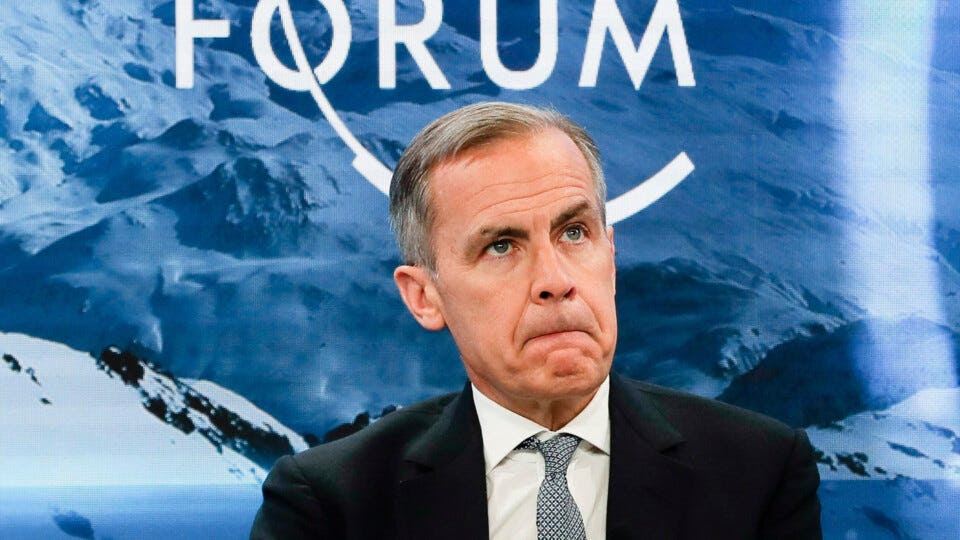
 National2 days ago
National2 days agoMark Carney’s Shocking Debate Meltdown
-
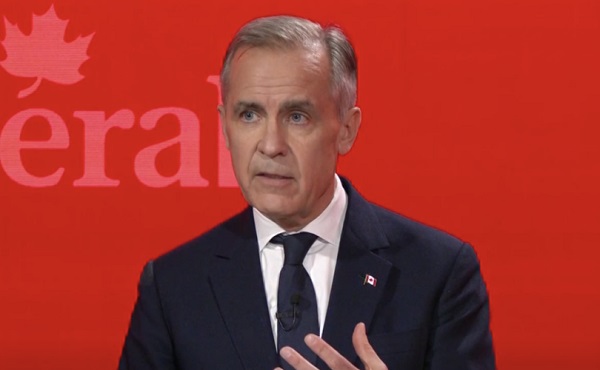
 Business1 day ago
Business1 day agoLiberal leadership debate sees candidates bash Trump, promise to fight ‘climate change’
-
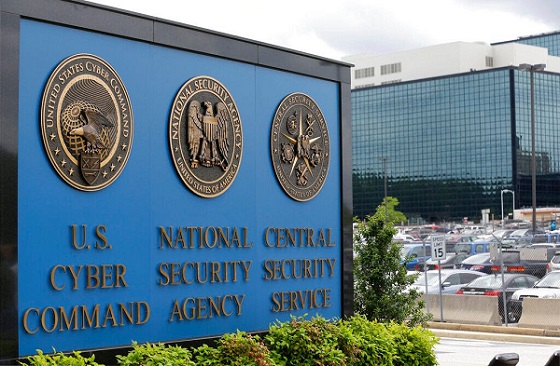
 Business2 days ago
Business2 days agoThe NSA’s Secret Sex Chats
-

 Opinion1 day ago
Opinion1 day agoLiberal leadership race guarantees Canadian voters will be guided by a clown show for a while yet
-

 Bjorn Lomborg2 days ago
Bjorn Lomborg2 days agoWe need to get smart about climate
-

 Business1 day ago
Business1 day agoCOVID lockdowns in Canada cost small businesses $60 billion in first year alone
-
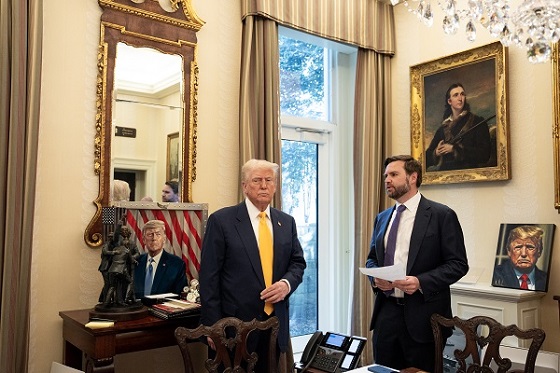
 Business24 hours ago
Business24 hours agoTrump: Tariffs on Canada, Mexico to take effect next week
-
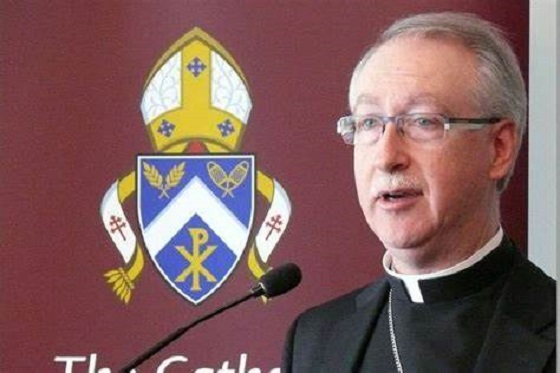
 Alberta2 days ago
Alberta2 days agoAppointment of Archbishop Smith as the next Archbishop of Vancouver





